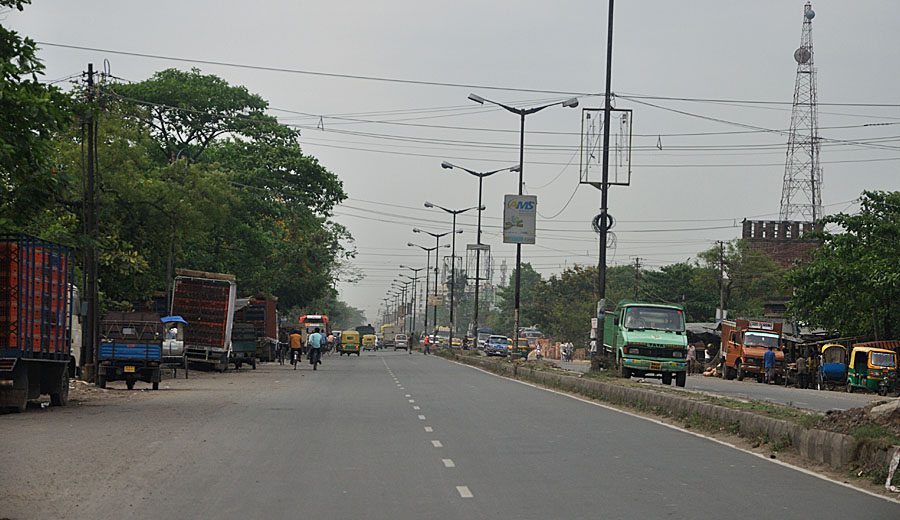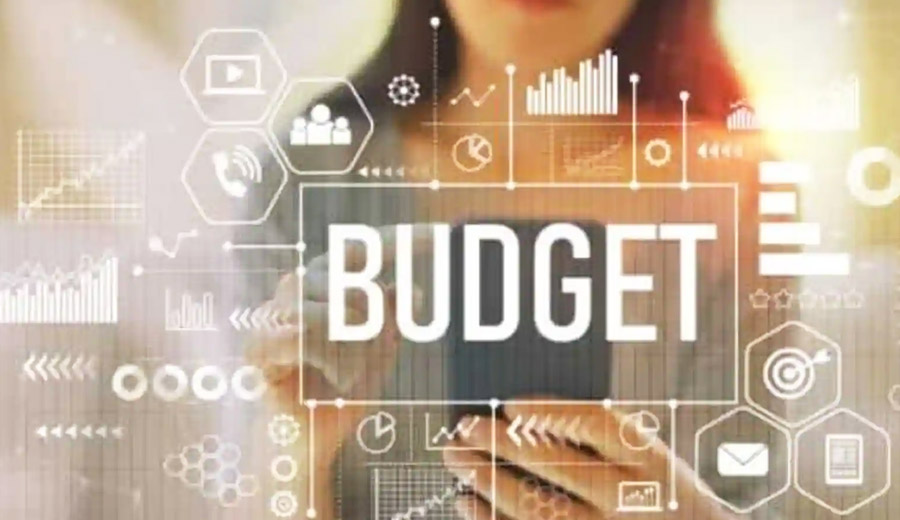Moonmoon has been missing her parents, what with busy workdays because of the approaching financial year-end.
Desperate for spending some quality time with them, she decided to take matters into her own hands.
So she punched numbers on her mobile phone and got connected to her mother.
But she didn’t tell her mother that she was missing them.
Instead, she tried her little trick.
She knew that her mother would be happier if she says it.
She said, “Your son-in-law was talking about visiting you. Didn’t go for quite some time.”
She could not notice that her mother suppressed a chuckle.
You can hardly be smarter than your parents even when you grow up.
Her mother said, “What a surprise! Your father and I were discussing the same yesterday evening. I was going to call you in a short time.
What don’t you two spend next Sunday with us? Come early in the morning to join us for breakfast.”
Bengali Breakfast
Raj is particularly fond of the Bengali breakfast. It’s usually luchi and alur dum, polished off with some sweets at the end.
With steaming cups of tea at hand, Raj and his father-in-law got engrossed in some discussions, while Moonmoon went to the kitchen to help her mother in cooking.
As usual, Raj and his father-in-law’s discussion started to centre around the economy after the initial pleasantries were over.
“World over, economies are changing. Growth is vanishing. Countries getting into economic hardships. Do you think, we will have to bear with economic sufferings too?” asked Raj.
“It is easy to say that we are ok. Our economy is doing fine. We are expected to be the fastest-growing economy. But you never know. Inflation is raising its ugly head and it can seriously cause significant disruption.” replied his father-in-law.
He added that the increasing interest rates are major causes of worry.
And the RBI has little option but to raise REPO Rate in the prevailing scenario.
Even high inflation and a resultant rate hike in the US have a bearing on RBI’s stance.
“Before we discuss how, let us understand how REPO Rate, MCLR, etc. influence home loan rates,” said Moonmoon’s father.
Repo Rate and Its Significance
Commercial banks need funds to lend. One of the major sources of funds is bank deposits.
However, this is not enough and banks need to borrow money from the RBI These borrowings are short-term in nature and the RBI charges the applicable Repo Rate on them.
Repo Rate is used as a potent tool to control the money supply in the economy and eventually manage inflation to a tolerable level.
A higher Repo Rate discourages banks from borrowing more funds, thus reducing funds in the system. A higher Repo Rate also increases the interest rate payable by the bank’s customers and this restricts borrowing by them.
Commercial banks also park their additional funds with the RBI and the RBI pays them according to Reverse Repo Rate. Reverse Repo Rate is fixed at a point lower than the Repo Rate.
Currently, the Repo Rate is 6.50% and Reverse Repo Rate is 3.35%.
The RBI, of late, has been raising Repo Rate gradually and this in turn is hiking the interest rate for home loans. As almost all home loans are floating rate based now-a-days, all existing loans are also repriced.
This has a direct bearing on all home loans, whether new or old, as EMI amounts go up.
The moot question is whether it will remain up for the entire tenure of the home loan.
Why MCLR Failed
Commercial banks are quick in passing on the increase in home loan rates to the customers, while they are generally quite slow in reducing their lending rates. So, even though changes in the Repo Rate should reflect in financial institutions’ interest rates immediately, only increases see fast transmission and often the RBI has to nudge banks, to pass on the benefits of reduced rates to borrowers.
In the case of MCLR-based loans, banks have to factor in their cost of deposit, operating cost, etc., apart from the repo rates, while calculating lending rates. Hence, MCLR-based loans are always likely to have slower transmission of policy rate changes.
Disappointed by the MCLR regime’s limited success, the RBI, in 2018, directed banks to switch to an external lending benchmark, so that the borrowers were better placed to reap the benefits of policy transformation. Following this, banks switched to the repo rate-linked lending regime, starting in October 2019.
All home loans are based on Repo Rate these days.
Interest Rates — What is Expected?
The RBI is using Repo Rate as the primary weapon to control inflation. Inflation decreases purchasing power of all consumers.
However, inflation is a global phenomenon and the RBI must also consider the interest rate action by the Federal Reserve of the USA.
If the interest rates are too low in India then the portfolio foreign investments will leave India in favour of the US. This will start a Dollar flight from India and weaken the Indian currency, making imports costlier.
It will further hike inflation and therefore the RBI must keep some parity with the US interest rates.
Unfortunately, inflation is proving to be sticky in India as well as the US.
Central banks are expecting to keep the interest rates elevated for an extended period, although most of the rates are done and no sharp hikes are expected.
Now, the good news is that the elevated interest rates are expected to almost certainly reduce inflation.
Once inflation is under control. Interest rates will be brought down.
What Should Homebuyers Do Now?
Inflation is cyclical and consequently, the interest rates in an economy is also cyclical. At some point, interest rates will peak and then they will come down.
As home loans are of long tenure, a borrower is expected to experience low and high interest rates during the loan tenure.
However, prices of hard assets like properties go up in an inflationary environment and it is preferable not to wait before buying them because increased prices of homes rarely come down in India.
“It is better to go ahead with buying your home instead of bothering too much about interest rates,” declared Moonmoon’s father in a firm tone.






